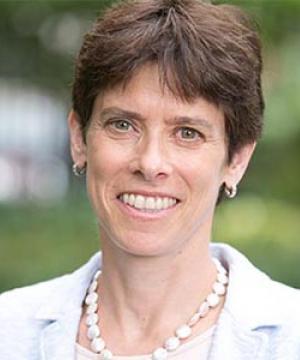Suzanne Goldberg on the #MeToo Movement
Columbia Law School Professor Suzanne Goldberg was the first guest on a new WNYC Radio podcast series that explores potential remedies for the sexual harassment, assault, and discrimination crisis in America. Host Jami Floyd said the four-part series, “Beyond #MeToo,” aims to move the national conversation from awareness to action.
Goldberg led a conversation and fielded questions from listeners about employee rights and companies’ legal responsibilities. She explained the nuances between sexual harassment and assault from a legal perspective and in the larger context of social norms.
The law “criminalizes various forms of sexual assault, from nonconsensual touching to rape, and much in between,” explained Goldberg. “In those situations, a prosecutor has to prove to a jury that the defendant engaged in this conduct beyond a reasonable doubt.”
She explained that the exact same conduct could also or alternatively be the basis for a civil lawsuit where a woman is seeking financial compensation from the defendant—and it can be a violation of company policy.
Later in the program, Goldberg discussed the challenges of suing a boss in court, given that the [hostile environment] law requires that the harassment be severe or pervasive. “There are loads of cases out there involving some pretty horrendous behavior where employers have gotten off.”
Tune in here:
Goldberg is founder and director of the Law School’s Sexuality and Gender Law Clinic, and co-director of the Center for Gender & Sexuality Law. As executive vice president of Columbia University’s office of University Life, Goldberg established and oversees the University’s Sexual Respect and Community Citizenship initiative.
# # #
Related content:
When You Experience Sexual Harassment at Work
Published on January 29, 2018
